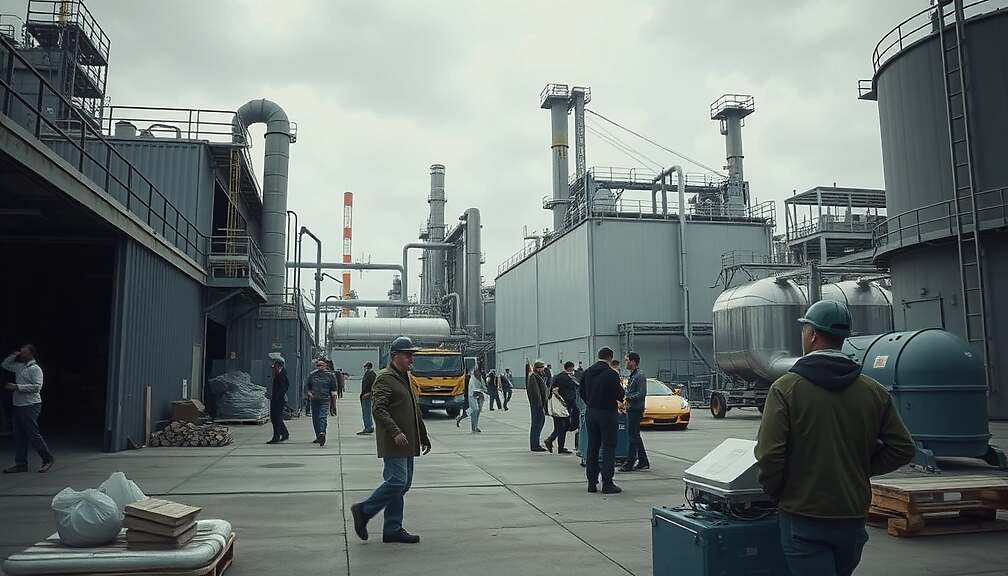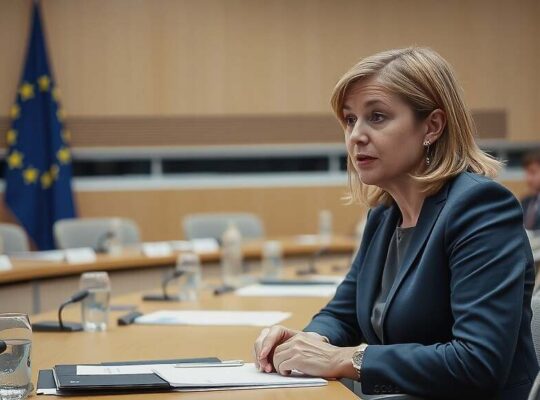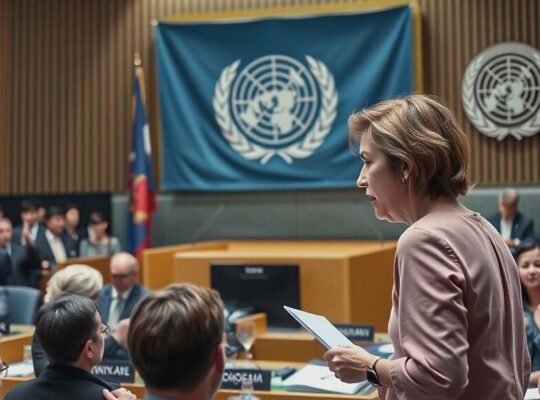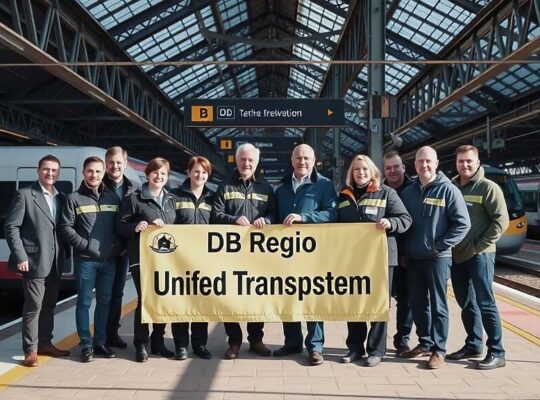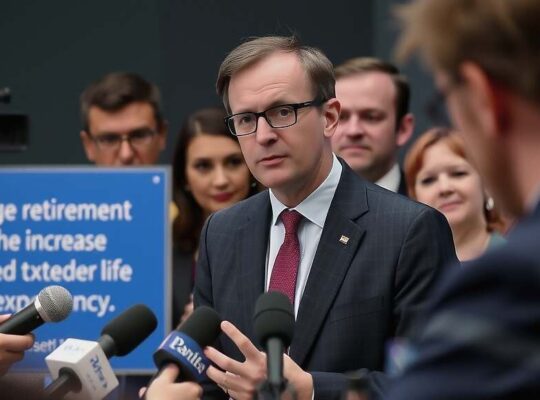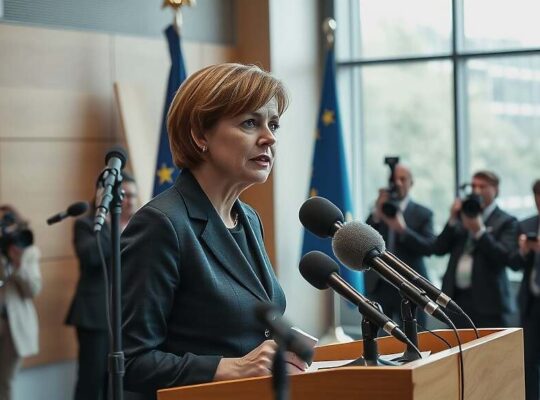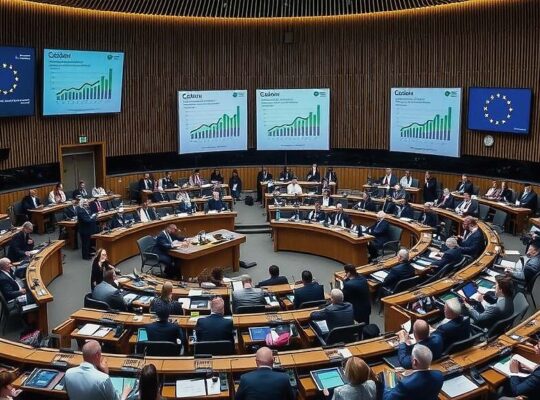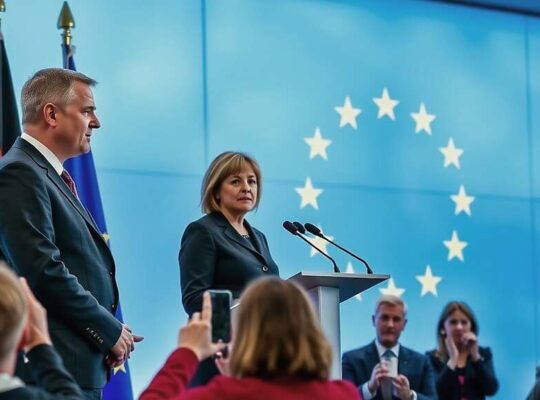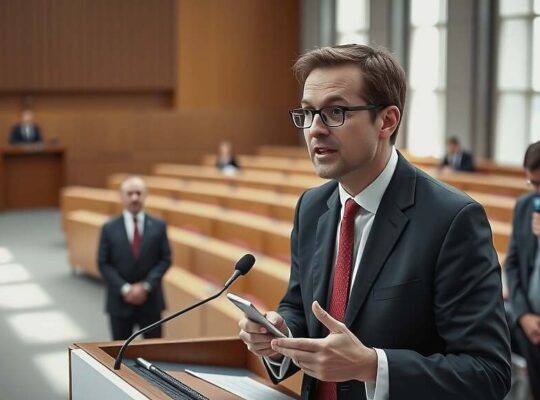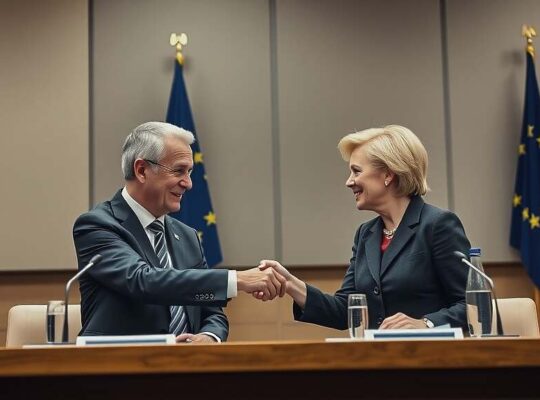The CEO of German chemical giant Evonik, Christian Kullmann, is escalating the debate surrounding the European Union’s Emissions Trading System (ETS), arguing for its complete abolition or a radical overhaul. Kullmann’s critique, delivered in an interview with “Süddeutsche Zeitung”, highlights a growing frustration within European industry regarding the increasing burden of carbon pricing and its detrimental impact on international competitiveness.
Kullmann contends that the EU’s ETS, already considered the world’s most stringent carbon pricing regime, is inflicting disproportionate hardship on European businesses while failing to address the global nature of climate change. He voiced concern that the system disadvantages industries possessing cutting-edge technology, placing them at a severe disadvantage compared to competitors operating in regions with less rigorous environmental regulations.
“We have the strictest CO₂ pricing regime globally, but climate change respects no borders” Kullmann stated, asserting that the current system economically “makes no sense” for Europe. He specifically pointed to the influx of goods produced in countries with significantly laxer environmental standards, implying that European industries are effectively subsidizing the carbon emissions of their international rivals.
The CEO’s call for reform is rooted in a perceived shift in the global economic landscape. Kullmann argued that an era of cooperative problem-solving among industrial nations is over, replaced by a more fiercely competitive environment where countries prioritize national interests. He emphasized that European industries are now competing against entities actively supported by their own governments, while simultaneously facing higher energy and raw material costs.
Furthermore, Kullmann dismissed the proposed Carbon Border Adjustment Mechanism (CBAM), intended to protect European industries from carbon leakage and environmental dumping, as ineffective and a “formal-bureaucratic trickery” lacking tangible impact. He expressed doubts about Europe’s ability to enforce such a mechanism effectively, particularly in the face of potential geopolitical resistance or trade disputes.
To alleviate the immediate pressure, Kullmann is advocating for an extension of the free allocation of carbon emission certificates to industries. Looking further ahead, he urges a broader reassessment of the feasibility and limitations of European industry across sectors – from automotive to cement to chemicals – regarding their CO₂ reduction commitments. He suggested either expanding the overall volume of available CO₂ certificates or reducing their price point to ensure economic viability. The CEO’s interventions are likely to reignite a contentious political debate concerning the balance between ambitious climate targets and the sustainability of European industrial competitiveness.


